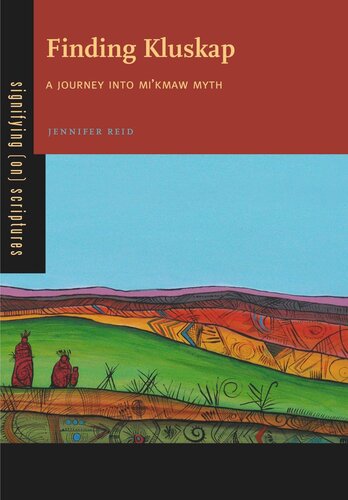

Most ebook files are in PDF format, so you can easily read them using various software such as Foxit Reader or directly on the Google Chrome browser.
Some ebook files are released by publishers in other formats such as .awz, .mobi, .epub, .fb2, etc. You may need to install specific software to read these formats on mobile/PC, such as Calibre.
Please read the tutorial at this link: https://ebookbell.com/faq
We offer FREE conversion to the popular formats you request; however, this may take some time. Therefore, right after payment, please email us, and we will try to provide the service as quickly as possible.
For some exceptional file formats or broken links (if any), please refrain from opening any disputes. Instead, email us first, and we will try to assist within a maximum of 6 hours.
EbookBell Team

4.1
50 reviewsThe Mi’kmaq of eastern Canada were among the first indigenous North Americans to encounter colonial Europeans. As early as the mid-sixteenth century, they were trading with French fishers, and by the mid-seventeenth century, large numbers of Mi’kmaq had converted to Catholicism. Mi’kmaw Catholicism is perhaps best exemplified by the community’s regard for the figure of Saint Anne, the grandmother of Jesus. Every year for a week, coinciding with the saint’s feast day of July 26, Mi’kmaw peoples from communities throughout Quebec and eastern Canada gather on the small island of Potlotek, off the coast of Nova Scotia. It is, however, far from a conventional Catholic celebration. In fact, it expresses a complex relationship between the Mi’kmaq, Saint Anne, a series of eighteenth-century treaties, and a cultural hero named Kluskap.
Finding Kluskap brings together years of historical research and learning among Mi’kmaw peoples on Cape Breton Island, Nova Scotia. The author’s long-term relationship with Mi’kmaw friends and colleagues provides a unique vantage point for scholarship, one shaped not only by personal relationships but also by the cultural, intellectual, and historical situations that inform postcolonial peoples. The picture that emerges when Saint Anne, Kluskap, and the mission are considered in concert with one another is one of the sacred life as a site of adjudication for both the meaning and efficacy of religion—and the impact of modern history on contemporary indigenous religion.